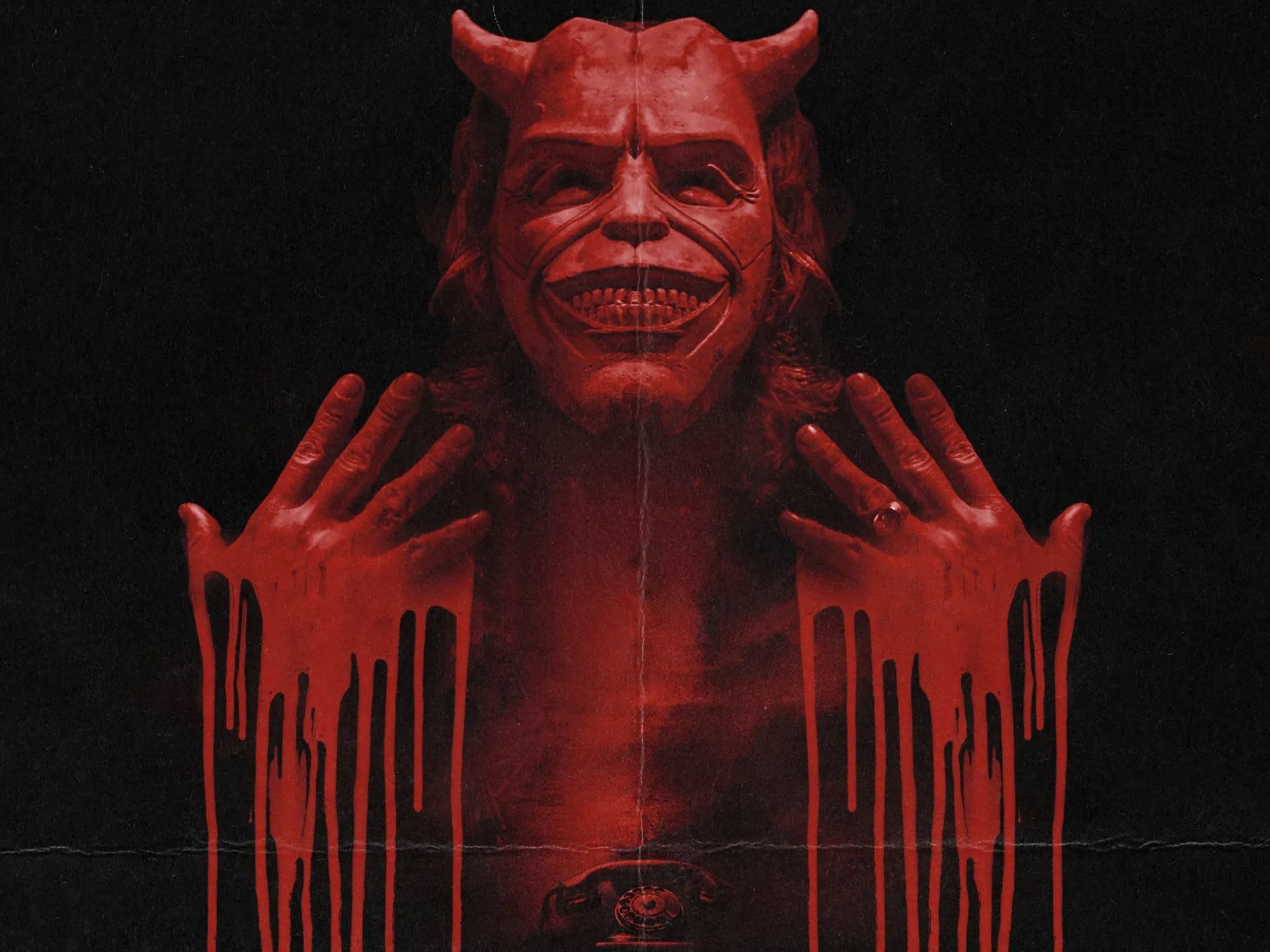Film Review: The Black Phone
There’s little impact to The Black Phone’s vacuous predictability
Scott Derrickson’s highly anticipated The Black Phone is a fractured, slack exercise in lukewarm horror. Undermining Joe Hill’s short story of the same name with multiple threads that never come together and a villain as thin as he is forgettable, The Black Phone makes weak-willed grasps at the intelligent thriller it could have been. At least Ethan Hawke got paid. Minor spoilers ahead…
Director Scott Derrickson is no stranger to the terrors of child-nabbing boogeymen; in fact, his 2012 film Sinister wears the honorable badge of “the scariest horror movie ever according to science.” The pulse-quickening story of a crime writer (Ethan Hawke) who stumbles upon a trove of grotesque snuff films - and one of the best jump scares ever - in the attic of his new home, Sinister introduced a whole generation of horror lovers to the demonic, otherworldly threat of Bughuul. Flash forward a decade, and Derrickson has re-teamed with frequent writing partner C. Robert Cargill to spin another kids-in-peril yarn, this time based upon the short story of the same name by Joe Hill, son of Stephen King. The Black Phone aims to recapture the decade-old magic, once again with Ethan Hawke, but this time as a mask-adorned child killer. Is it successful? Not particularly. A horror movie as rote, low-impact vapor, The Black Phone dissipates almost immediately from the consciousness with pieces that never fit together and a mechanical inelegance.
Joe Hill wrote the breezy, 30-page tale that sets the template for its film adaptation, borrowing elements familiar to any King (or Hill) fan: sleepy suburbia, vicious bullies, derelict adults, and psychic kids. Centered around a young boy named Finney Shaw (Mason Thames), The Black Phone tells the story of a small town in the 1970s gripped by a rash of child murders committed by a serial killer known only - lazily and absurdly - as The Grabber (Ethan Hawke). Finney and his precocious, clairvoyant little sister Gwen (Madeleine McGraw) are raised by their abusive single father (Jeremy Davies), and the young teen is possessed with the superstition that if you say The Grabber’s name, he’ll come for you next. His fears are proven true when he stumbles upon the killer’s black van, lured into his own abduction under the pretense of some spilled groceries. When Finney wakes up, he finds himself in a basement dungeon: a soundproof room outfitted with a dirty mattress, an out-of-reach window, and the titular broken rotary phone on the wall. However, to his surprise, the disconnected landline occasionally rings to deliver hauntingly helpful messages from The Grabber’s slain victims. Like feeding the answers to an escape room, the ghostly voices outline the fatal mistakes of the past, hopefully offering Finney a chance to escape the same grisly fate as his phantom callers.
“A horror movie as rote, low-impact vapor, The Black Phone lurches forward with a mechanical inelegance that undermines the fleet chills of its source material.”
Ethan Hawke does the very best with what he’s given, bringing a twisted physicality to the mask-wearing murderer, but there’s surprisingly little underneath his shapeshifting visage. With The Grabber’s tepid modus operandi that just amounts to goading his victims into ill-advised escape attempts that end with their gruesome deaths, the tension surrounding Finney’s escape is disappointingly slack, and there’s nothing unique or distinctive about this horror villain: his methodology is just about as bland as his nom de guerre. There are glimpses of pathos that threaten to reveal themselves, but the tantalizing hints at The Grabber’s own history with abuse and captivity are mere threads that are never pulled.
The Black Phone entertains three parallel narratives, none of which bear any real fruit or substance. As Finney gathers information and tools to abet his escape, other forces are also closing in on his location. His sister aids some bumbling detectives with her psychic visions, tightening the dragnet around Finney’s prison with each passing premonition; elsewhere, a drug-addicted amateur sleuth (James Ransone) is just a little too slow to glean that The Grabber is much closer than he realizes. The Black Phone sets these concurrent investigations and Finney’s basement gauntlet up for a rousing crescendo where all the pieces fall into place, but frustratingly, it’s all a feint: Nothing comes together and everything fizzles out as the film lurches towards its largely unearned crowd-pleaser of an ending.
“Even The Black Phone’s horror elements — completely lacking Derrickson and Cargill’s typically bracing and on-point cleverness — underwhelm.”
Even The Black Phone’s horror elements - completely lacking Derrickson and Cargill’s typically bracing and on-point cleverness - underwhelm. The jump scares are all dimestore gotchas, and the ghostly children themselves are more plot devices than tragic victims, offering little more than semaphores to Finney’s deliverance. But at least it all looks like a real movie; Derrickson still composes atmosphere like no other, and the scarce moments of true suspense are all thanks to some fun compositions. It’s funny enough that The Black Phone’s chilliest moments don’t come from The Grabber himself, but from its shoehorned 8mm reels that accompany Gwen’s visions; eerily reminiscent of Sinister’s disturbing found footage, it’s creep factor by way of evocation.
2012’s Sinister delivered a full-blooded vision of terror. Amidst its now infamous snuff footage, it told the tale of a man burdened by balancing his macabre work with the safety of his family, and it was also the last time Derrickson’s work was truly scary. The Black Phone, comparatively, feels remarkably thin and built from a box of scraps and dead ends. With its psychic investigations, 70s backdrop, and Ethan Hawke doing his best under the mask of a serial killer, there’s a real corker of a horror movie hidden within the walls of The Black Phone, but instead it’ll have to settle for what it actually is: one of the year’s biggest disappointments.













